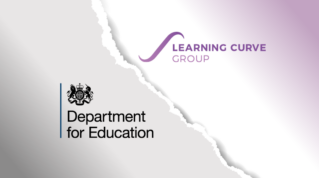The Greater London Authority has today published its first regional adult education budget (AEB) learner survey.
The GLA took control of the capital’s annual AEB budget back in 2019 and announced plans to launch a learner survey in early 2020 to capture social, learning and employment outcomes for the AEB.
Mayor Sadiq Khan is responsible for the £320 million per year budget for the capital, which included a cost of £300,000 for the GLA’s learner survey.
The survey examines seven outcomes, divided into economic and social outcomes. Economic outcomes comprise progression into employment, movement within work and progression into further learning; and social outcomes entail health and wellbeing, improved social integration, improved self-efficacy and participation in volunteering.
The survey received full answers from 6,297 GLA-funded learners out of a possible 201,000 learners in the capital. It was comprised of one survey when the learners began their AEB course in the academic year 2021/22 and a follow-up survey around five to seven months after the course ends.
Here are the results:
Half of learners have positive outcome
In the academic year 2021/22, 52 per cent of non-retired learners had a positive economic or educational change after their course.
Almost three in 10 (29 per cent) of learners who were out of work when their course started moved into employment following their learner aim.
The report also found one third of those in employment reported that their pay had increased in the time between the two surveys, whilst 47 per cent reported their pay remained the same.
It added that there was a 10 per cent increase in average annual income from survey participants reporting their earnings.
Prior to starting the course, 30 per cent of learners said they had enrolled so they could begin another course or training programme. Over double (68 per cent) then continued or were poised to begin more study or training.
High social outcomes
Regarding social outcomes, the majority of participants (96 per cent) experienced a positive social change following their AEB course.
The survey found most of the AEB courses (84 per cent) had a positive impact on learner’s wellbeing. Learners said that they felt significant increases in their life satisfaction and happiness and reductions in anxiety levels.
According to the results, 79 per cent of AEB courses helped learners meet new people, when 30 per cent said it was one of the reasons for enrolling in their course.
It also helped learners to spend time with more adults from different social classes. Prior to AEB participation, one in five (19 per cent) learners spent quite a lot or all their time with adults from a different social class, and this increased to one in four (25 per cent) during their course.
The survey also found 52 per cent of AEB learners do not participate in volunteering.
However, there was a small increase in the percentage of learners taking part in formal volunteering, such as working at a charity, which rose from 16 per cent to 19 per cent in the follow-up survey.

















Your thoughts